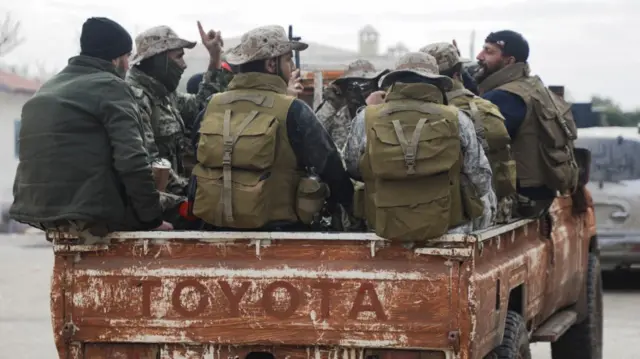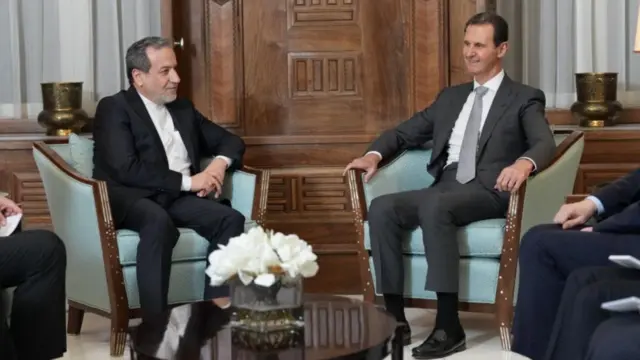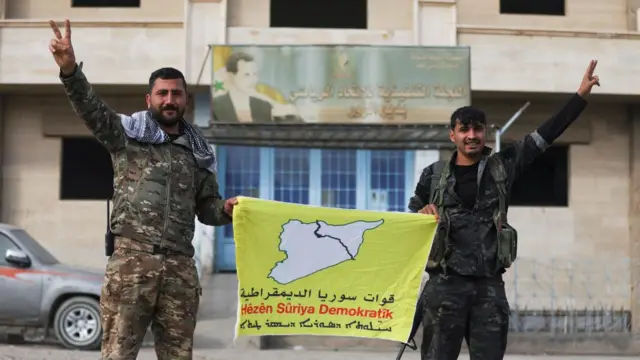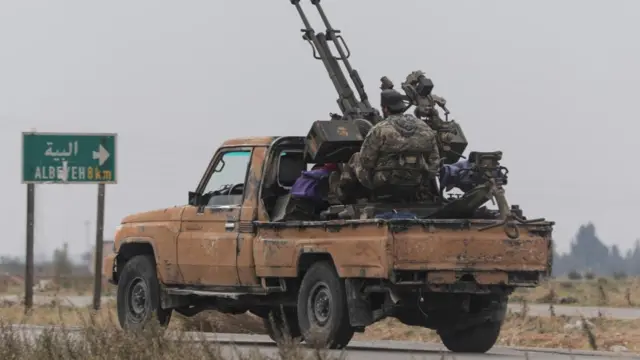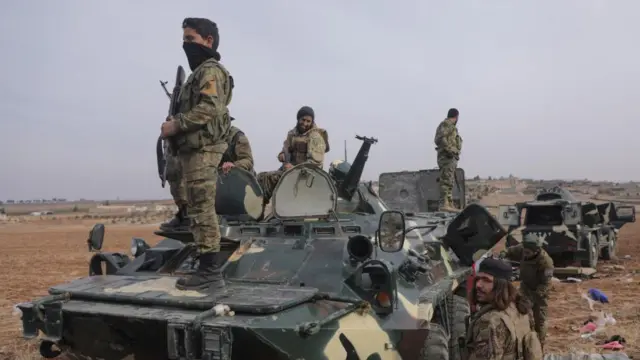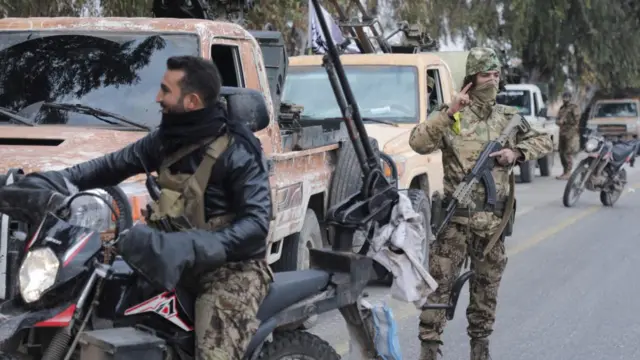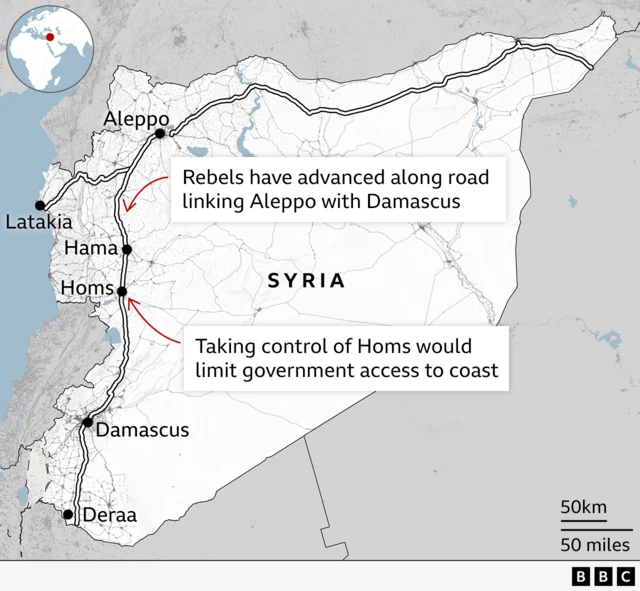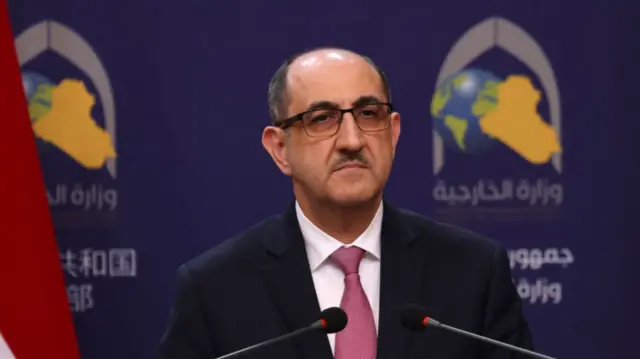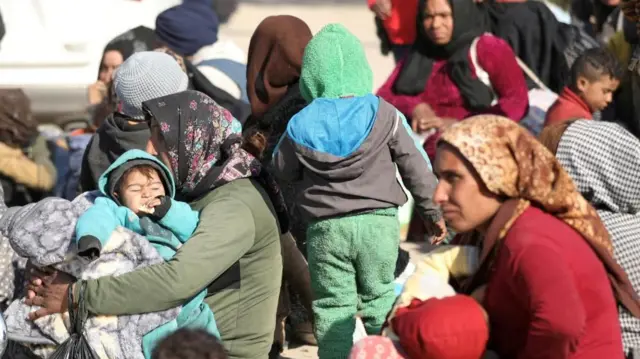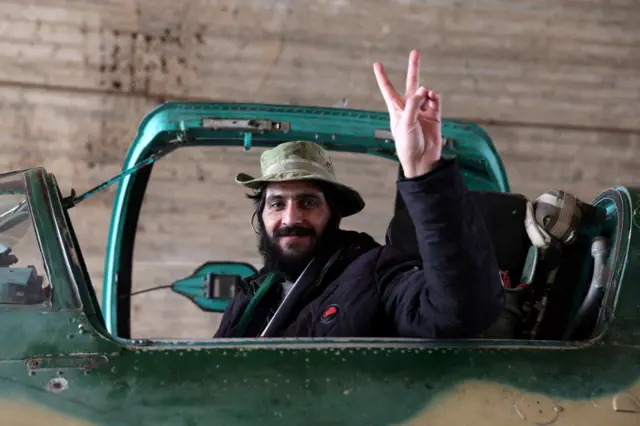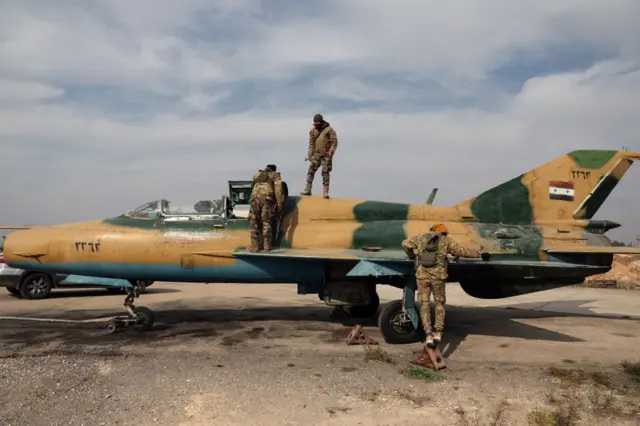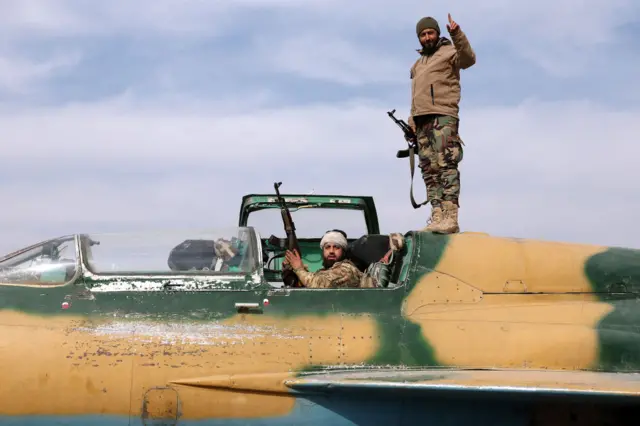Damascus falling suburb by suburb to rebels, US official tells CBSpublished at 15:58 GMT 7 December 2024Breaking
An unnamed US official has told the BBC's US partner, CBS News, that Damascus appears to be "falling suburb by suburb to the rebels", as fighters opposed to the Assad regime progress along the main road to the Syrian capital.
As we have already mentioned, a video appears to show a statue being torn down by protesters in a southern suburb of Damascus, while fighting is taking place in Syria's third-largest city Homs.
However, the Syrian government denies the rebel takeover in the capital and says that President Bashar al-Assad has not fled the city.


